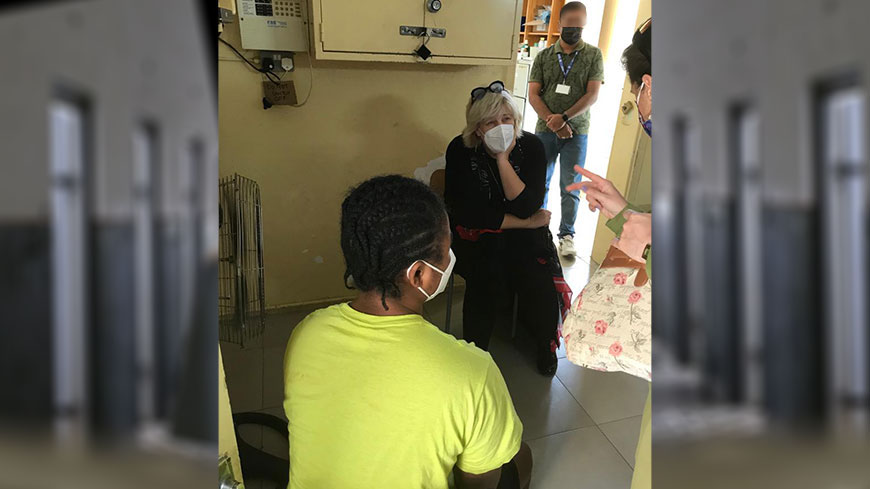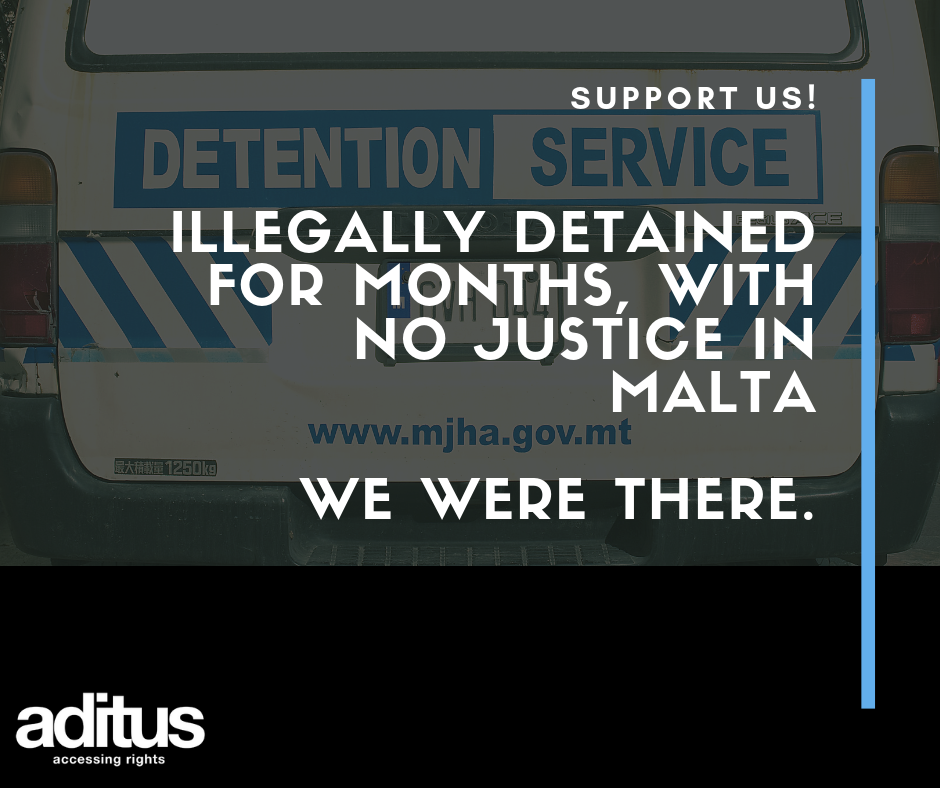A case filed by aditus foundation lawyers on behalf of a Bangladeshi journalist was recently communicated to Malta by the European Court of Human Rights. Following the communication, Malta refused to settle the issue with the applicant. The Court had invited Malta to grant international protection to the applicant and close the case, but the Government refused and the case is now before the Court. The case is based on our assessment that Malta’s unfair detention and asylum policies put refugees at risk of being returned to their countries.
Ahmed’s story
Ahmed* is a Bangladeshi journalist who fled his country in 2019 after being targeted by the ruling party during the elections. He arrived in Malta by boat in September 2021 and sought protection here. As soon as he arrived he was taken to Malta’s detention centre, where he remained for the whole duration of his asylum procedure. Throughout this time, more than a year, he did not have proper access to a lawyer.
The death march in the Mediterranean begins with human traffickers and people trying to escape war-torn Libya.
Ahmed
In November 2020, he sent a desperate email to aditus foundation through one his relative. Our lawyers realised that Ahmed had been kept in detention for 14 months: 5 months more than the maximum foreseen by European and Maltese law for asylum-seekers.
aditus’ lawyers flagged Ahmed’s illegal detention to the Immigration Police and requested his immediate release. He was released on 13 December 2020, but this was short lived.
On 16 December he was arrested again when he went to renew his identity document at the Police Headquarters in Floriana.

Ahmed was told by the Police that his asylum application had been rejected, and that he will be removed to Bangladesh. He was served with a Removal Order and sent back to the Safi Detention Centre after 3 days of freedom.
It looks like the timing of Ahmed’s rejection was no coincidence. Somehow the International Protection Agency issued a rejection right after we flagged his illegal detention to the Immigration Police.
Ahmed’s lawyer
He was not entitled to appeal his asylum rejection, since he is from a country which is considered safe by Malta. Ahmed, as well as most individuals coming from these countries, are only entitled to a three days review by the International Protection Appeals Tribunal (IPAT). This review does not allow them to present their views or be represented by a lawyer.
In 2021, the IPAT confirmed all of the International Protection Agency’s rejections for people coming from these countries. The Constitutional Court of Malta recently confirmed that this review does not constitute an appeal and is in breach of the Constitution of Malta.
Our lawyers appealed Ahmed’s Removal Order before the Immigration Appeals Board, arguing that he is at risk of harm if returned to Bangladesh. They obtained further evidence on his asylum claim and filed a request to reopen his case at the International Protection Agency.
This request was rejected within a few days and again Ahmed could not appeal the decision and defend his case before a Court.
A request for bail made to the Immigration Appeals Board was denied in June 2021. At that point, Ahmed had been detained for a total of 651 days (21 months) and his mental and physical health was slowly deteriorating. We were very worried.
The Immigration Appeals Board rejected the appeal against the Removal Order. The Board did not conduct an assessment on the risk Ahmed would face if returned to Bangladesh, stating that there was “no reason to doubt the decisions of the International Protection Agency”.
I would rather kill myself than be sent back to Bangladesh, because I will die there for sure!
Ahmed doing one of his last Board hearings
Ahmed and the European Court of Human Rights
We then decided to file a case before the European Court of Human Rights, alleging that Ahmed’s return would expose him to a serious risk of harm. We also and requested the Court to urgently order Malta to stop his pending removal.
In August 2021, the Court concluded that Malta indeed failed to conduct an adequate assessment of the risk of harm he would face if returned to Bangladesh. The Strasbourg Court ordered Malta not to remove Ahmed to Bangladesh.
Ahmed was released from detention a few days after, nearly 2 years after he first set foot on Malta in search of safety. He doesn’t forget the inhuman conditions in which he was detained for 2 years, and remembers those who stayed behind.

Many more like me are imprisoned, they have been in there for about 26 months, many try to commit suicide due to physical and mental suffering…
You can take a bath twice a month, you get a T-shirt once every 6 months, you are not allowed to go outside, to phone outside, and it is impossible to expect a doctor if you are sick.
Ahmed
In March 2021, the European Committee for the Prevention of Torture warned the Maltese authorities that the conditions in Safi could very well amount to inhuman and degrading treatment. More recently, the Council of Europe Commissioner for Human Rights Dunja Mijatović called on the authorities to prevent the detention of vulnerable asylum-seekers and migrants, to invest in alternatives to detention, and immediately end the detention of children.
Every detained migrant must be treated with dignity, with strong safeguards to protect them from ill-treatment or abuse.
Independent monitoring bodies and NGOs should have unhindered access to detention places.
CoE Commissioner for Human Rights
Despite that, the detention of minors and vulnerable individuals continues. In January 2022, three children were released from illegal detention following a Court action by aditus.
According to European and Maltese law, the detention of asylum seekers and migrants must be a measure of last resort, when alternatives to detention cannot be imposed. In practice, Malta detains people from countries to which removals are generally feasible, in most cases without any individual assessment. People like Ahmed are being kept in detention and processed through an unfair asylum procedure until they are forcibly removed to their country of origin. In a few cases, we are able to release them because they reach – or exceed – the maximum detention period allowed by the law.
Ahmed’s story is just one of hundreds. He sincerely hopes that his case before the European Court of Human Rights will contribute to positively change the way Malta treats asylum seekers.
We will stand by Ahmed throughout this difficult journey, for him and for the thousands illegally detained and denied an a fair asylum procedure.
I thought Europe is a place of humanity… it is very sad to see that Malta does not care about these values… I will fight the case until the end.
Ahmed

